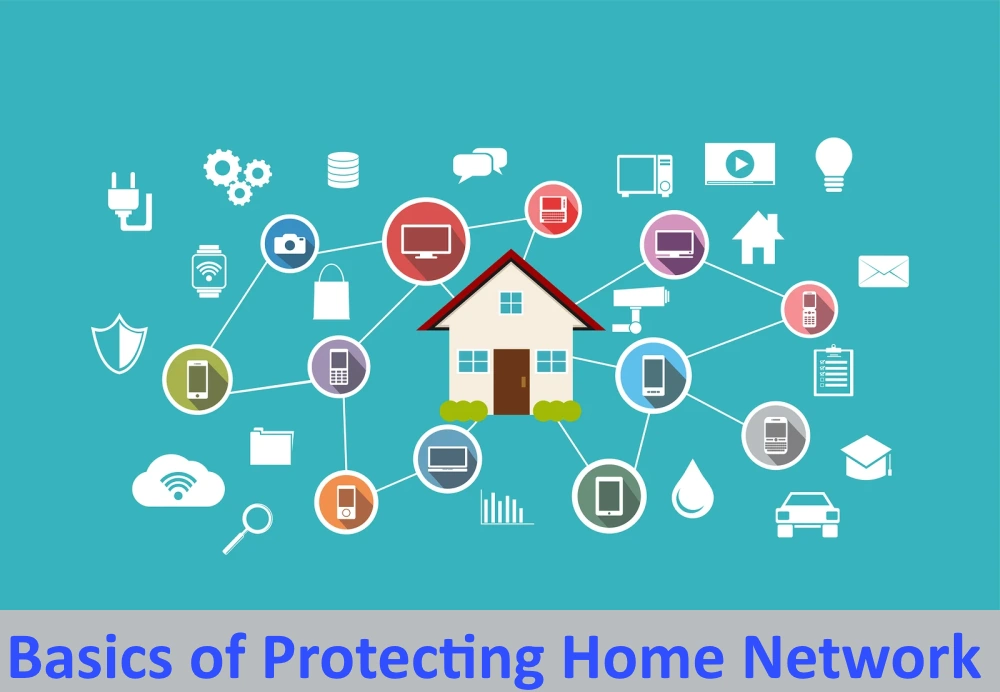If you’re like most people, you likely don’t think about your home network as a potential target for external threats. But that’s not always the case. Your home connection is just vulnerable to attack from hackers or thieves. And that’s why it is crucial to take care of home internet security.
People often ask us, “What is the most common way to protect a network from external threats?”. In this article, we’ll mention some of the basic and simple ways of how to secure home network. One of the best and reliable ways is to install VPN on router.

We’ll discuss which is the secure VPN app along with some other tips on how to protect your Wi-Fi. So, if you have the following question: “What are basic steps to secure your home network?”, then this guide is worth reading!
Why should people take care of home network security?
People should take care of their home internet security because if a hacker gets into their network, they can steal information or even crash it.
A hacker can also use the connection to get into other computers on the network. Home networks are often not as well protected as business networks, so they are an easy target for hackers.
People should also take care of their home internet security because it can help protect their computers from viruses and other malware. If someone gets into your computer through your network, they can do a lot of damage. Also, to get online protection from hackers, it is essential to have a router VPN. We’ll discuss it more shortly now!
What are the basic steps/ways to secure your home network?
Use a strong password for the router:
If people are using a wireless router to connect their devices to the internet at home, it’s important to make sure that their network is as secure as possible. One way to do this is to use a strong password for the router. This will help keep unauthorized users from accessing the network and stealing data.
A strong password should be at least 8 characters long and include a mix of letters, numbers, and symbols. People should also change their passwords regularly, preferably every 1-2 months.
Setup VPN on router:
A Virtual Private Network, or VPN, is a great way to secure your home network and keep your data private. People can set up router VPN, which will encrypt all of the traffic flowing through their home network. This will protect your data from prying eyes, and it will also keep your identity and location hidden.
Setting up a VPN on your router is a bit complicated, but it’s worth it for the added security. We recommend users to use VeePN as it can be set up easily on their routers and can provide advanced security against hacker attacks.
Enable Wi-Fi network encryption:
It is crucial to turn on Wi-Fi encryption, if you want to keep your network protected from external threats. There are four types of Wi-Fi network encryption: WEP, WPA, WPA2, and WPA3.
WPA3 is the newer, more secure option, but it’s not supported by all devices yet. If you have a newer router, you may want to use WPA3 encryption. If your router doesn’t support WPA3, you should use WPA2 encryption instead.
Turn on router firewall:
Setting up a firewall on the home router is an important way to secure the network and keep data safe. Many routers come with a default firewall enabled, but if yours doesn’t, you can easily turn on the firewall feature in your router’s settings.
A firewall helps protect the computer from unauthorized access and can help prevent hackers from gaining access to data. It also helps protect users from malicious software that might be trying to infiltrate their network.
If people don’t have a firewall enabled on their home router, now is a good time to turn it on. It only takes a few minutes and can help keep them and their family safe online.
Update router’s firmware:
One way to ensure that the home network is secure is to update the router’s firmware. Firmware is the software that powers the router and helps protect it from attackers. By keeping the firmware up to date, people can reduce the chances of someone hacking into their network.
Updating the firmware can be tricky, though. Each router has its own firmware update process, so users will need to consult their manufacturer’s instructions.
Turn off Wi-Fi when not at home:
When you’re not at home, it’s important to remember to turn the Wi-Fi off. This is a quick and easy way to secure the home network and keep the information safe. When the network is turned off, no one can access the files or devices.
Disable remote access:
If people want to secure their home network, one of the best things they can do is disable remote access. With remote access disabled, people will not be able to access the network from outside their home. This can help protect data and privacy, and it can also help keep the devices safe from hackers.
In conclusion, by following these simple steps, home networks can be better protected from hackers and other online threats. The best one among the above is to use a reliable VPN like VeePN to get protection while using the internet.

